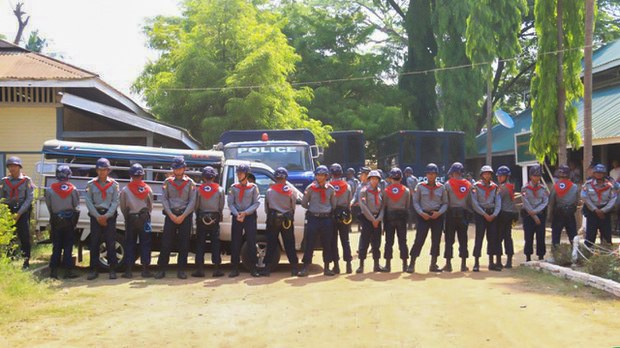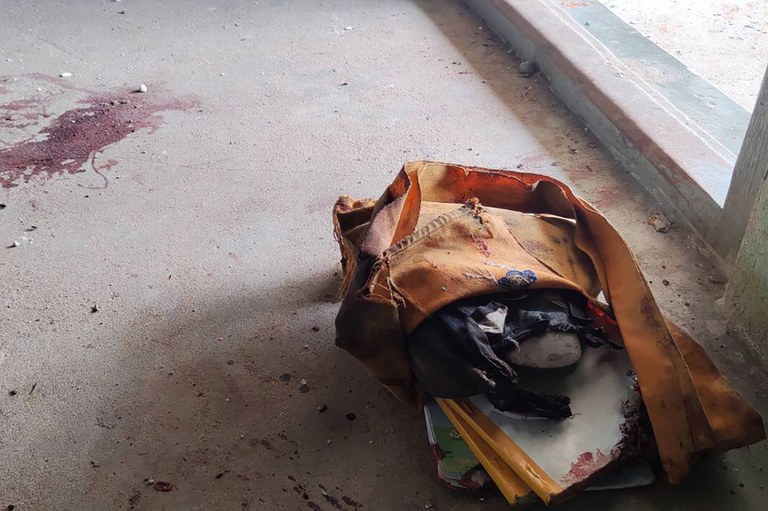Vietnam promotes ‘problematic’ bid for UN Human Rights Council membership
Vietnam is mounting an assertive campaign to win a seat on the United National Human Rights Council in an Oct. 11 vote, but critics say Hanoi’s poor record at home and diplomatic support for major rights violators abroad disqualify the one-party state. Fourteen seats on the 47-member Council will be filled by the U.N. General Assembly full-member vote. The highest human rights body has long faced criticism that countries seen as major rights abusers are members who team up to shield each other from scrutiny. Critics say Hanoi’s record of cracking down on journalists, activists and social media commentators makes it a poor choice for the Council. And they say Vietnam would join the bloc of countries that block Council action on major crises, as it did in its previous 2014-16 term. “There is little doubt that Vietnam will be a problematic, highly negative influence on the Human Rights Council if it is elected to the 2023-2025 term,” said Phil Robertson, deputy director of the Asia division at Human Rights Watch (HRW). “In fact, at every opportunity, Vietnam does not hesitate to show its contempt for international human rights law, and if they get a seat, it’s highly likely they will seek to undermine meaningful actions by the Council,” he told RFA. Tuesday’s vote in New York comes days after China and its allies on the 47-member Council defeated a U.S. proposal that the Council hold a debate on a recent report by the body’s rights chief on abuses in China’s Xinjiang region. Vietnam has conducted an intense propaganda and lobbying drive to support its effort to be elected to the Council. On Sept. 30, Deputy Prime Minister Phạm Binh Minh approved a huge public relations campaign intended to boost the country’s reputation in the human rights field. Under the project, all Vietnamese state agencies will regularly provide human rights information to the media by 2028, while state officials working in the field will receive communications training. Over the past month, state media have touted what they say are Vietnam’s human rights achievements and criticized the international community’s accusations of rights violations in the Southeast Asian country. Vietnamplus, an online newspaper, recently ran two stories titled “Vietnam attaches importance to international cooperation in human rights protection” and “Vietnam ready to contribute further to UN affairs.” The Voice of Vietnam online newspaper, meanwhile, ran a story titled “Vietnam pledges to make active contributions when becoming member of the UN Human Rights Council.” ‘Unworthy’ candidate Human rights lawyer Nguyen Van Dai, a former political prisoner who now lives in Germany, said Vietnam was seeking Council membership for the 2023-25 term to boost its standing. “Authoritarian governments often try their best to join the United Nations agencies, including the Human Rights Council, so that they can use it to tell people inside their country that accusations of their human rights violations are inaccurate,” he told RFA. “The fact that the Vietnamese Communist government has made every effort to become a member of the Human Rights Council is for political purposes only,” he told RFA. “They will not make any contributions to protect the human rights of their own people as well as of other peoples in the world.” In April, a coalition of eight organizations from inside and outside Vietnam, including the Vietnam Human Rights Network, Human Rights Defenders, Dai Viet Quoc Dang and the Vietnam Independent Journalists Association, sent an open letter to the U.N. calling on it to reject Vietnam as a Council member for the next term. They said the country was “unworthy” because of its poor human rights record and support for Russia’s invasion of Ukraine. On Oct. 3, three NGOs — UN Watch, Human Rights Foundation and the Raoul Wallenberg Center for Human Rights — jointly issued a report on rights abuses by the 14 candidate countries, including Vietnam, to circulate to U.N. diplomats. The report says that the rights situation inside Vietnam has not improved. It noted that when Vietnam served on Council from 2014-16, it opposed resolutions supporting rights victims in Belarus and Iran and failed to support resolutions on behalf of rights victims in Burundi and Syria. Another coalition of rights NGOs groups from Europe, the U.S. and Canada has called on U.N. member states to oppose the election of Vietnam, Afghanistan, Algeria, Sudan and Venezuela, countries deemed “unqualified” because of their grim human rights records and voting records on U.N. resolutions concerning human rights. London-based Amnesty International said Vietnam’s efforts to be elected to the Council flew in the face of the facts on the ground. “Vietnamese authorities should show that they are willing to uphold international human rights standards, but nothing could be further from the reality on the ground, where the government continues to pass laws that restrict freedom of expression and association while promoting a climate of fear among people who dare to speak out,” an Amnesty spokesperson told RFA. Getting worse in Vietnam Nguyen Dinh Thang said human rights in Vietnam had worsened since the country’s nomination as a Council member in April 2021. A further stain on the country’s human rights record was its vote against a resolution to dismiss Russia from the Council for invading Ukraine, he said. Vietnam does not deserve membership after years of rounding up its critics, said attorney Nguyen Van Dai. “Over the past four years, Vietnam has arrested many political dissidents who only had exercised their freedom of expression and press freedom,” he said. There are more than 100 political dissidents in jail, most of whom openly criticized the government for wrongdoings, including corruption and rights violations, though none of them opposed the state, Dai said. “They only raised social issues which were completely true,” he said. “Almost all of them only commented on and analyzed the issues raised by state media. They did not collect the information from somewhere or provide inaccurate information about the Communist government of Vietnam.” Vietnam is currently detaining 253 prisoners of conscience, according to the rights group Defend…







